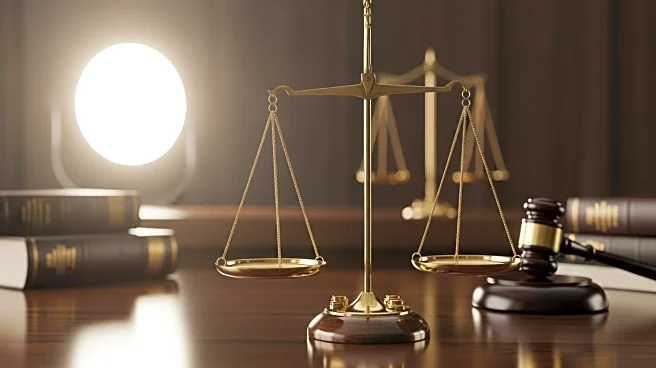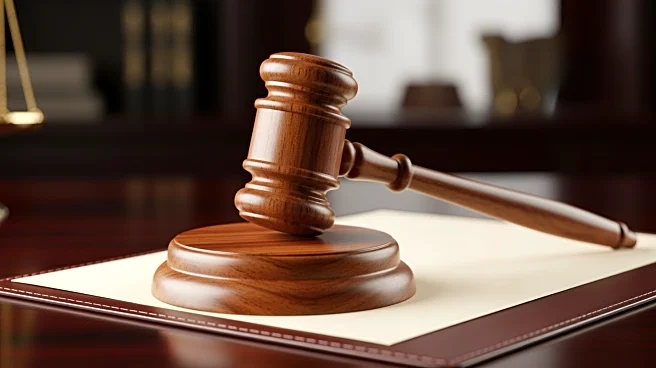What's Happening?
Kim Kardashian and Kris Jenner have filed a defamation lawsuit against Ray J, following his public claims of a federal RICO investigation involving them. The lawsuit, filed on October 1, 2025, accuses Ray J of spreading false allegations through his Twitter account, which has approximately 1.4 million followers. The plaintiffs argue that Ray J's claims have no factual basis and seek legal action to prevent further dissemination of these allegations. This legal move highlights the challenges celebrities face in managing their reputations in the digital age, where social media platforms can rapidly amplify unverified claims.
Why It's Important?
The lawsuit underscores the growing tension between public figures and the power of social media platforms to spread potentially defamatory content. As celebrities increasingly turn to legal avenues to protect their reputations, this case could set a precedent for how courts handle defamation claims related to social media posts. The outcome may influence how platforms and content creators manage the dissemination of unverified information, potentially leading to stricter policies and legal scrutiny. This development is significant for the entertainment industry, where reputation is a critical asset, and for social media platforms that may face increased pressure to regulate content.
What's Next?
If the courts side with Kardashian and Jenner, it could lead to more celebrities pursuing legal action against false claims spread online. Platforms might be compelled to implement faster response mechanisms to address high-impact allegations. Additionally, brands and agents may demand clearer social media policies from talent to mitigate reputational risks. The case could also prompt discussions on the balance between free speech and the responsibility of platforms to prevent the spread of false information.
Beyond the Headlines
This lawsuit highlights the ethical and legal challenges of managing celebrity reputations in the digital era. It raises questions about the accountability of individuals and platforms in spreading unverified claims and the potential consequences for public trust. As social media continues to play a significant role in shaping public perception, the case may influence long-term shifts in how defamation is addressed legally and culturally.










